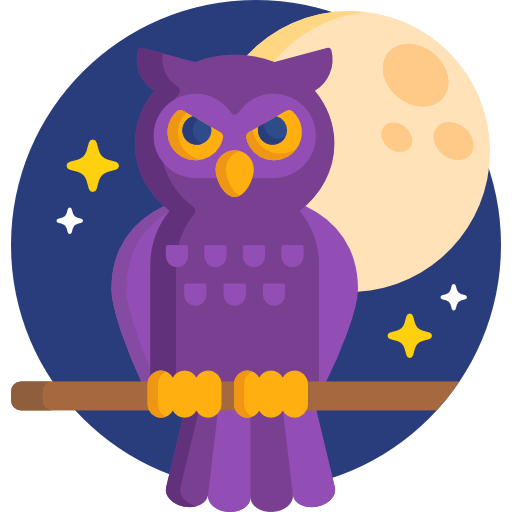Owning an owl as a pet is not legal in most countries, including the United States
. In the US, only trained and licensed individuals can keep native owls for breeding, educational purposes, or as part of a rehabilitation program. Even then, the owl is not considered a pet, and the US Fish and Wildlife Administration has “stewardship” over it, which means they can take it back into custody if they determine that’s what’s best for the owl. Owls are wildlife species, and you will need to be trained before you get a license to keep a native species in captivity. Owls are not domesticated animals, and even if you are licensed and trained to care for an owl, you don’t own the owl. Captive-bred, hand-reared owls can be very sweet and good-natured, but it must never be forgotten that they are wild animals. Experts largely agree that owls should not be kept as pets.
- What Are The Legal Considerations And Regulations Surrounding Owning Owls As Pets In Different Countries Or Regions?
- What Are The Specific Care Requirements And Challenges Associated With Keeping Owls As Pets, Such As Their Diet, Housing Needs, And Socialization?
- Are There Any Ethical Concerns Or Potential Negative Impacts On The Conservation And Welfare Of Owls When They Are Kept As Pets?
- Helpful Resources
What Are The Legal Considerations And Regulations Surrounding Owning Owls As Pets In Different Countries Or Regions?
The legal considerations and regulations surrounding owning owls as pets vary by country or region:
- United States:
- Owning a pet owl is generally not legal in the United States, unless you are trained and licensed, or using the owl for breeding or educational purposes.
- Even if you are licensed and trained to care for an owl, you do not technically own the owl.
The U.S.
Fish and Wildlife Administration has “stewardship” over the owl and can take it back into custody if deemed necessary. - Native owls in the United States can only be possessed by trained, licensed individuals while being rehabilitated, as foster parents in a rehabilitation facility, as part of a breeding program, for educational purposes, or for falconry in some states.
- United Kingdom:
- Owning various owls as pets is possible in the UK, but it requires special permits and training.
- Other Countries:
- Owning owls without special permits is generally illegal in most countries.
- Some countries may issue permits to individuals who have undergone necessary training and have proper facilities for owl care.
What Are The Specific Care Requirements And Challenges Associated With Keeping Owls As Pets, Such As Their Diet, Housing Needs, And Socialization?
Owls are not a good choice for pets, and it is best to leave them in the wild.
Here are some specific care requirements and challenges associated with keeping owls as pets:
Diet
- Owls are carnivorous creatures and must be fed whole rodents, such as mice, small rabbits, guinea pigs, quail, and small chickens.
- Owls have specialized nutritional needs that cannot be met by feeding them seeds, pellets, or fresh foods like fruits and vegetables.
Housing - Owls need appropriate housing, including proper perching surfaces.
- Owls that are capable of flying need to be provided with enough space to fly.
Socialization - Owls need attention and exercise regularly.
- Owls like routine, so disruption to the normal scheme of things is very stressful for them.
- Owls that are human-imprinted may be aggressive with anyone else who comes to take care of them.
Legal Requirements - Owls are high maintenance and require daily feeding, cleaning, and attention.
- Owls are protected by law, and it is illegal to keep them as pets without a permit.
- Owning an owl requires extensive training to become a certified and bonded professional raptor handler.
- Most veterinarians don’t have the necessary training to properly care for owls, so you’d need to find a vet who’s comfortable working with an owl.
- You cannot travel freely with an owl, and in the U.S., you will always be asked to show a permit if you try to take your owl across a state border.
Are There Any Ethical Concerns Or Potential Negative Impacts On The Conservation And Welfare Of Owls When They Are Kept As Pets?
Keeping owls as pets raises several ethical concerns and can have negative impacts on the conservation and welfare of owls.
Here are some reasons why owls are not suitable as pets:
- Owls are wild creatures: Owls are not domesticated animals and are not suited to living in a typical home environment.
They are designed to hunt and kill small prey, not to entertain human owners. - Owls are not cuddly pets: Owls do not tolerate frequent contact with humans because it is against their evolved nature.
They have razor-sharp talons designed for piercing and cutting, not for perching on your shoulder. - Owls require specialized care: Owls are purely carnivorous, and their owners must stock up on dead rodents and thaw them every day.
Owls also require specialized facilities and training, and permits are required in most countries. - Owls are protected species: In the United States, it is illegal to keep native owls as pets, and they may only be possessed by trained, licensed individuals while being rehabilitated, as foster parents in a rehabilitation facility, as part of a breeding program, for educational purposes, or for falconry in some states.
Owls are protected under the Migratory Bird Treaty Act, which is a federal measure in the US put in place to protect exotic animals. - Owls are not pets: Owls have never been, nor ever will be, considered pets except in the most disrespectful of captors.
